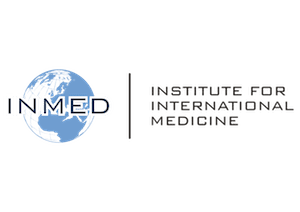Forum Replies Created
-
AuthorPosts
-
January 15, 2023 at 9:02 pm in reply to: International Clinical Health Week 1 Discussion Forum #51764
 Taylor ZoellnerParticipant
Taylor ZoellnerParticipantImaobong,
I love that you brought up the COVID-19 pandemic and the War on Ukraine as events which have led to increased food insecurity in very recent times. This has such a direct impact on communities globally and are most definitely two areas we must work on in order to improve worldwide food security.
January 15, 2023 at 8:58 pm in reply to: International Clinical Health Week 1 Discussion Forum #51763 Taylor ZoellnerParticipant
Taylor ZoellnerParticipantGareth,
I love your point about a lack of government support being a substantial barrier to vaccination rates, and I completely agree. It would be interesting to see some sort of graphic looking at government support for vaccines and rates of measles broken down by country. I also wonder what we could do as healthcare providers to influence other government systems in other countries to reach towards higher vaccination rates when it seems to be lacking as a fundamental value in some governments.
January 15, 2023 at 8:52 pm in reply to: International Clinical Health Week 1 Discussion Forum #51762 Taylor ZoellnerParticipant
Taylor ZoellnerParticipantQuestion 1: What system-wide changes in your opinion, would most successfully increase world-wide food security?
I think the idea of improving food security on a global scale is extremely complex and has been a topic up for discussion for many years. If I had to pick only a few ideas to focus on they would be education, community based production of food, and efforts to keep the food production local. In terms of education, it should focus on global efforts and not just local efforts in impoverishment areas. Of course those specific communities lacking eduction may need more time and energy spent on learning about why nutrition is important and what foods can provide sustenance and sustainability but at the same time I think developed nations would benefit immensely from learning about how we can all make our diet and food production habits more sustainable long term for the benefit of many (ex: less red meat and more plant based diets). Additionally, I think that empowering communities to plant and grow their own foods for a more local production system would benefit not only the members of that specific community, but would provide benefit on a global level as the negative aspects of mass food production continue to grow. With this framework, communities may feel more empowered and in control of their own health. These ideas are obviously easier said than done, but even if done on a very small scale, benefit may be seen.
Question 2: What do you believe are the most substantial barriers to global measles elimination, and how can these be overcome?
I think the most substantial barriers to global measles elimination include vaccine misconceptions/lack of education and a lack of funding for vaccine campaigns. Because the prevalence of measles has decreased substantially over the past 20 years, people are less likely to understand the ill effects of not continuing herd immunity as they haven’t experienced these diseases first hand. In terms of overcoming the barriers, primary care providers play a major role. Talking to families and their children in order to relay the importance of the measles vaccine by providing the benefits and risks in a scientific way while still allowing the patients to choose at the end of the day will likely result in higher compliance when compared to efforts trying to force families to vaccinate their children. Education provides more success in situations like these, when the entire picture is explained to patients. Additionally, the rates of MCV1 and MCV2 vaccination are also very important in order to continue to protect the population on a global scale. In order to advocate for this, funding must be provided to make the information available as public knowledge, even those who do not frequent the doctor. It may also be beneficial to speak with small communities who are refusing the vaccine in order to understand their perspective and to see if they are willing to receive education on the vaccines. The key with small communities like this is to gain trust slowly through many genuine interactions.
 Taylor ZoellnerParticipant
Taylor ZoellnerParticipantHello!
My name is Taylor Zoellner and I am a 3rd year medical student in Scottsdale, Arizona and currently plan to apply to pediatric residencies next fall. I am originally from Minnesota but am loving the warmer winters down here! Ever since I traveled to India in college for a “Future Physician” course, I knew that I wanted to continue to learn about international medicine and public health and I hope to bring this into my future practice in some capacity as I learn more about it.
Taylor
-
AuthorPosts
